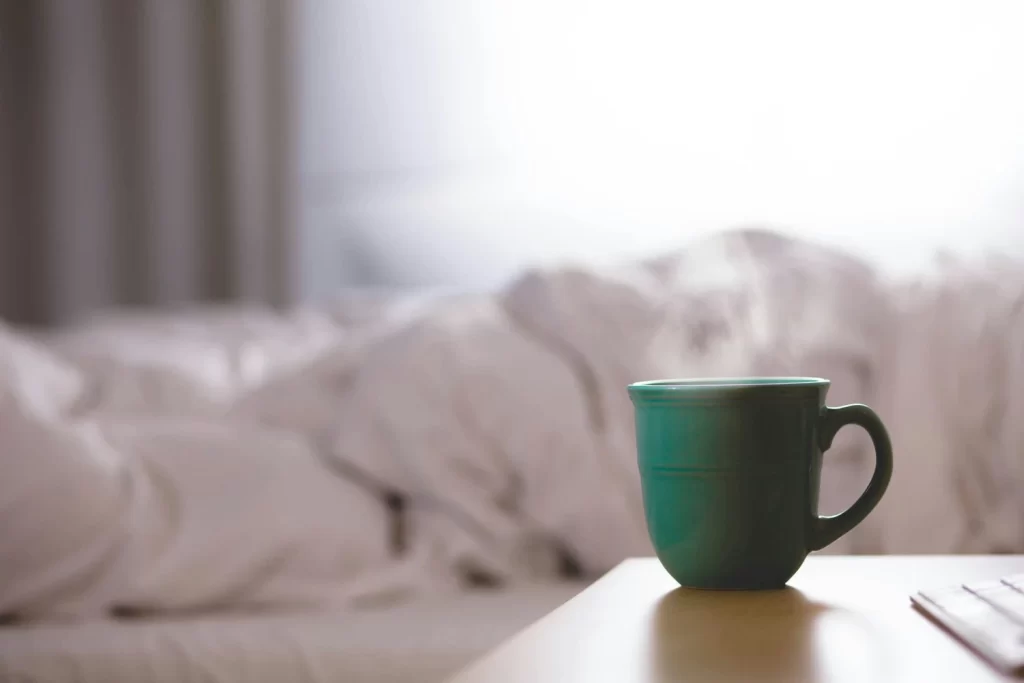Morning Habits: Pros and Pros

Morning routine is more impactful than any other routine. It set the tone to your day. A stretch, journal and intention may just be the acceleration you need to up your game and down your stress.
Habits frame our day. Habits form our mindset. Habits define our response to the outer world: they determine how we respond to challenges, how productive we are, how we feel, and how we handle stress. Among all the routines we cultivate, a solid morning routine is arguably the most transformative. By starting your day with purpose, you set the tone for mindfulness, focus, and calm. Here we explore the importance of habits, how to build them sustainably, and how a morning routine can help you manage stress.
Why Are Habits So Powerful?
Habits operate like autopilot for your brain. They save energy, streamline your day, and make certain behaviors automatic. According to psychologist Dr. Gabor Maté, habits reflect the narratives we internalize over time. “Our actions stem from deeply rooted patterns, often influenced by stress or trauma,” he explains. Developing positive habits can rewire the brain to foster resilience and reduce anxiety.
Mel Robbins, author of The 5 Second Rule, adds, “Habits aren’t about perfection; they’re about consistency.” This insight is key: the small, repeated actions we take are far more impactful than sporadic efforts. Building consistent habits, especially in the morning, sets the foundation for a more focused and stress-free day.
The Brain and Habits: How It Works
When you form a habit, your brain’s basal ganglia—the area responsible for habit formation—becomes engaged. Habits reduce decision fatigue by automating repeated actions. Initially, building a habit requires willpower and intention, activating the prefrontal cortex. Over time, the behavior shifts to the basal ganglia, where it becomes almost effortless.
Creating new habits is most effective when:
-
They Are Specific: For example, instead of saying, “I’ll have 5 minutes for myself,” say, “I’ll do a 5-minute sun salutation flow each morning.”
-
They Are Easy to Start: Begin with achievable steps to avoid losing motivation, or quitting due to time constraints.
-
They Are Consistent: Repetition is crucial. Daily practice turns a new behavior into a solid habit.
How Morning Habits Reduce Stress
Morning routines offer a buffer between you and the chaos of the day. They ground you, providing clarity and stability. Stress hormones like cortisol are naturally higher in the morning, making this a perfect time to introduce calming rituals.
-
Promotes Mindfulness: Activities like meditation or yoga increase awareness and reduce anxiety.
-
Improves Mood: A positive start releases dopamine, setting a cheerful tone for the day.
-
Boosts Productivity: Structured mornings eliminate decision fatigue, allowing you to focus on bigger priorities.
Dr. Gabor Maté emphasizes that “morning rituals create a space to reconnect with your inner self before the demands of the world take over.” Similarly, Mel Robbins suggests that the first few moments after waking are pivotal for mental clarity and motivation. Starting with a small but meaningful ritual, like journaling or yoga, can make a significant difference in managing stress.
Introducing a New Habit: The Sustainable Way
Building a new habit requires strategy and patience. Here’s how you can create lasting change:
-
Anchor to an Existing Habit: Attach the new habit to something you already do. For example, “After brushing my teeth, I’ll do my sun salutation flow.”
-
Start Small: Focus on manageable actions. Even 2 minutes of yoga can set the foundation for a longer routine.
-
Track Progress: Use a journal or app to log your consistency. This reinforces the habit loop and keeps you motivated.
-
Reward Yourself: Celebrate small wins, like completing a week of your new habit.
-
Stay Flexible: Life happens. Missing a day doesn’t mean failure. Simply get back on track the next day.
The 10-Day ‘Close The Year Strong’ Morning Challenge
Ready to finish the year strong? Take on this 10-day challenge recharge and refuel your brain and body and to introduce a morning habit that combines mindfulness and movement. The challenge: practice a sun salutation flow every morning for 10 days. Here’s how to get started:
-
Commit to 5-10 Minutes: Dedicate a small block of time for your flow. Use a yoga mat or just a comfortable space.
-
Track Your Feelings: After each session, jot down how you feel in a journal. Note changes in mood, stress, or energy.
-
Celebrate Your Progress: Reward yourself after completing the challenge—maybe with a new journal or yoga accessory.
The Bottom Line
Habits are the building blocks of a fulfilling life, and your morning routine can be the cornerstone. By creating space for mindfulness and movement, you can reduce stress and start each day with clarity. As Dr. Gabor Maté and Mel Robbins suggest, the key to lasting change is consistency and compassion toward yourself. Take on the 10-day challenge, and see how this simple practice transforms your mornings—and your life.
This challenge isn’t just about improving your mornings; it’s about reclaiming control over your time and energy. Ready to give it a try? Your best self is waiting.

